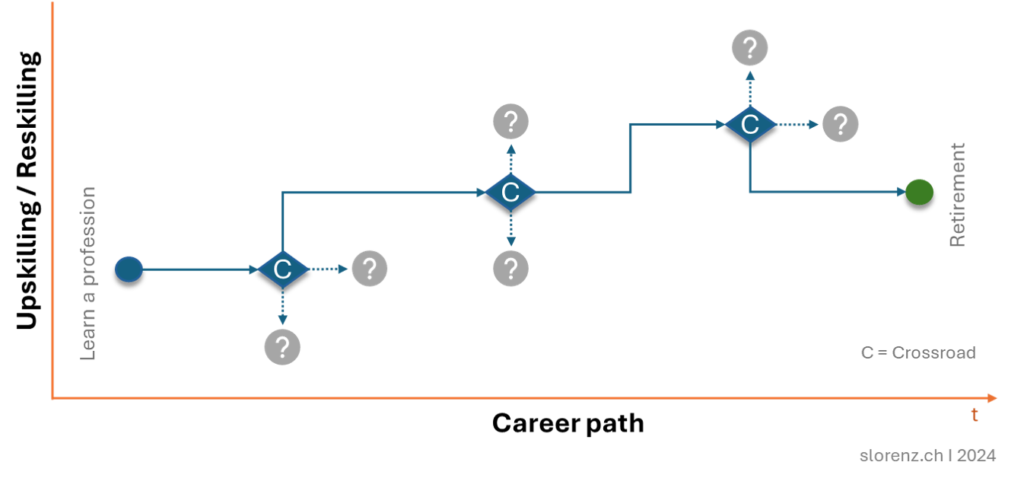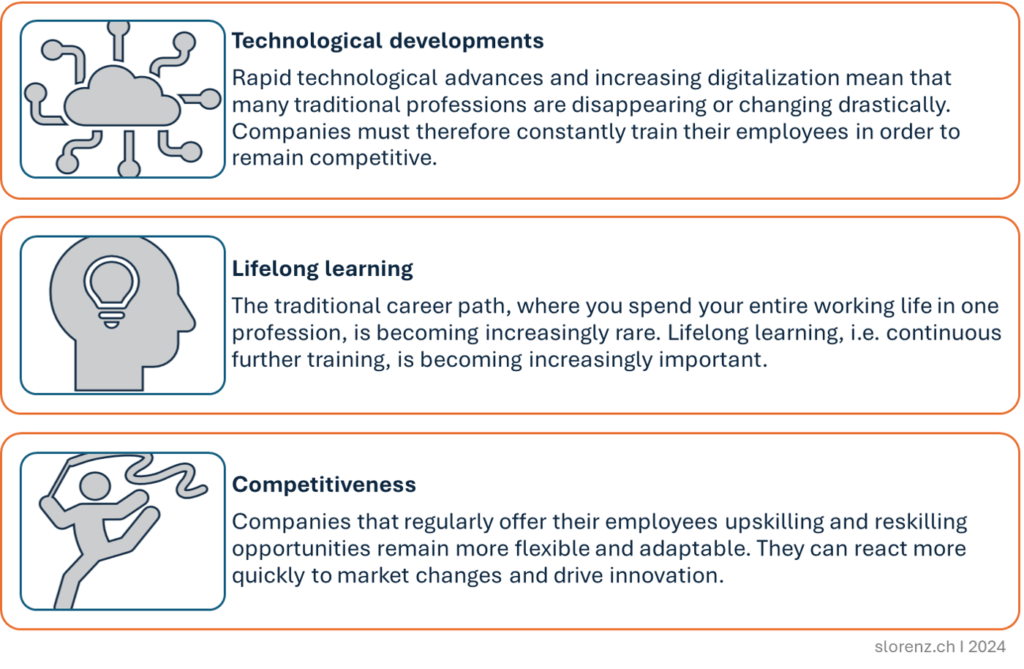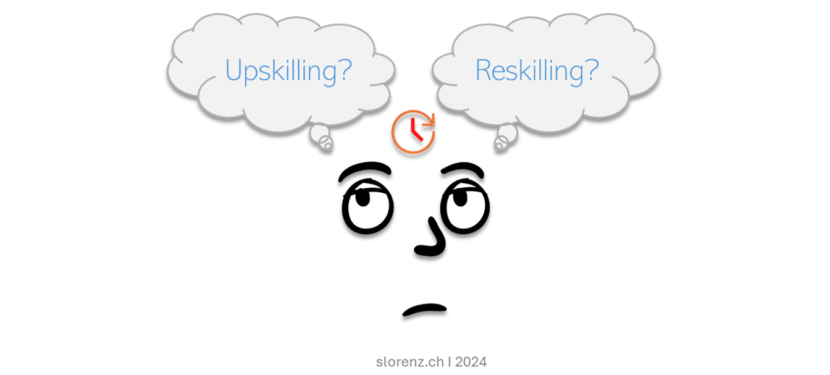During our careers, we repeatedly come to a crossroad where we have to decide whether we want to go right, left or straight ahead. The decisions can be simple or very complex. Especially when it comes to a completely new career direction, this is associated with many uncertainties and often also fears.
Nevertheless, these decisions are important. Especially today, we are confronted with this topic time and again: Upskilling or reskilling.

Upskilling and reskilling are terms that play a central role in personnel development and in the context of the rapidly changing world of work. Both concepts aim to expand employees’ competences, but differ in their focus and application.
💡 Upskilling
Upskilling refers to the expansion or deepening of an employee’s existing skills and knowledge in their current area of work. The aim is to further develop existing skills in order to master new tasks or technologies that become relevant in the existing role.
🔎 Example: An accountant learns new software for financial accounting or deepens their knowledge in the areas of tax law or data analysis.
💡 Reskilling
Reskilling refers to learning completely new skills that are required to take on a different, usually new role in the organisation. This often happens when certain positions become obsolete due to automation, technological changes or market changes.
🔎 Example: A production employee learns programming skills in order to work in the IT department or as a data analyst after their previous role becomes obsolete due to automation.
🔦 Relevance in the modern world of work

🚩 Upskilling and reskilling are key strategies for continuously expanding employees’ skills and preparing them for future requirements, which is crucial for both companies and employees.
📎 For you as a take away
🔑 To successfully manage change in your career, it is important to remain flexible and open to new opportunities, continuously develop your skills and proactively look for ways to adapt to changing requirements. A positive attitude towards change, combined with a clear plan and strategic direction, allows you to utilise change as an opportunity for personal growth and professional progress.
🎯 Reflect regularly on your goals and adjust them if necessary to ensure you are always on the right track.
What are your experiences with this topic? I look forward to an exciting exchange with you.
Take care & best regards
Stephan





